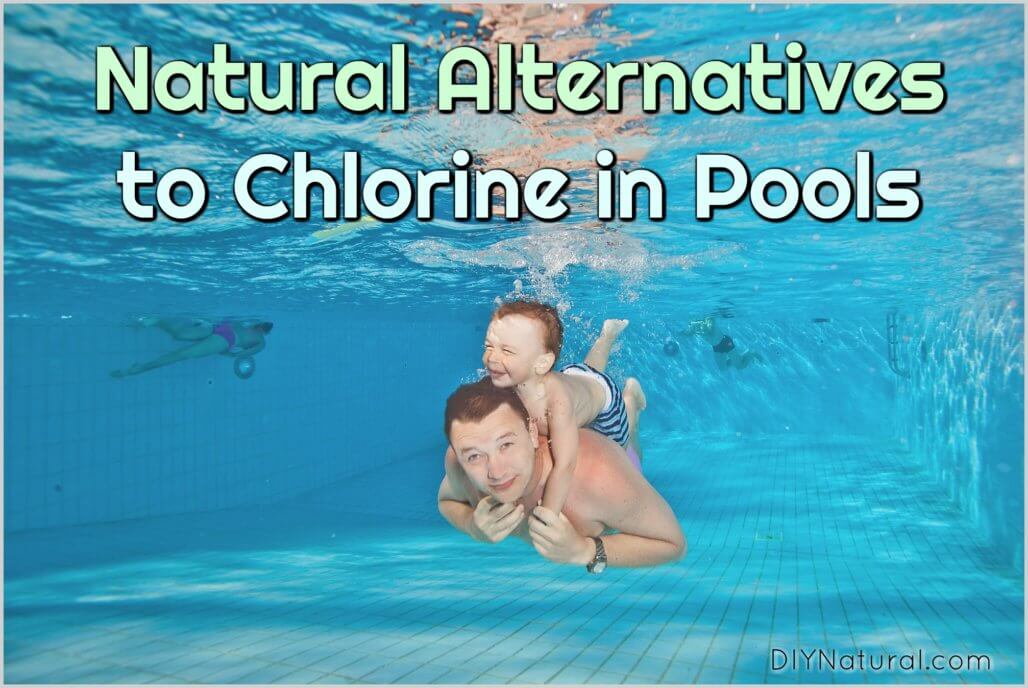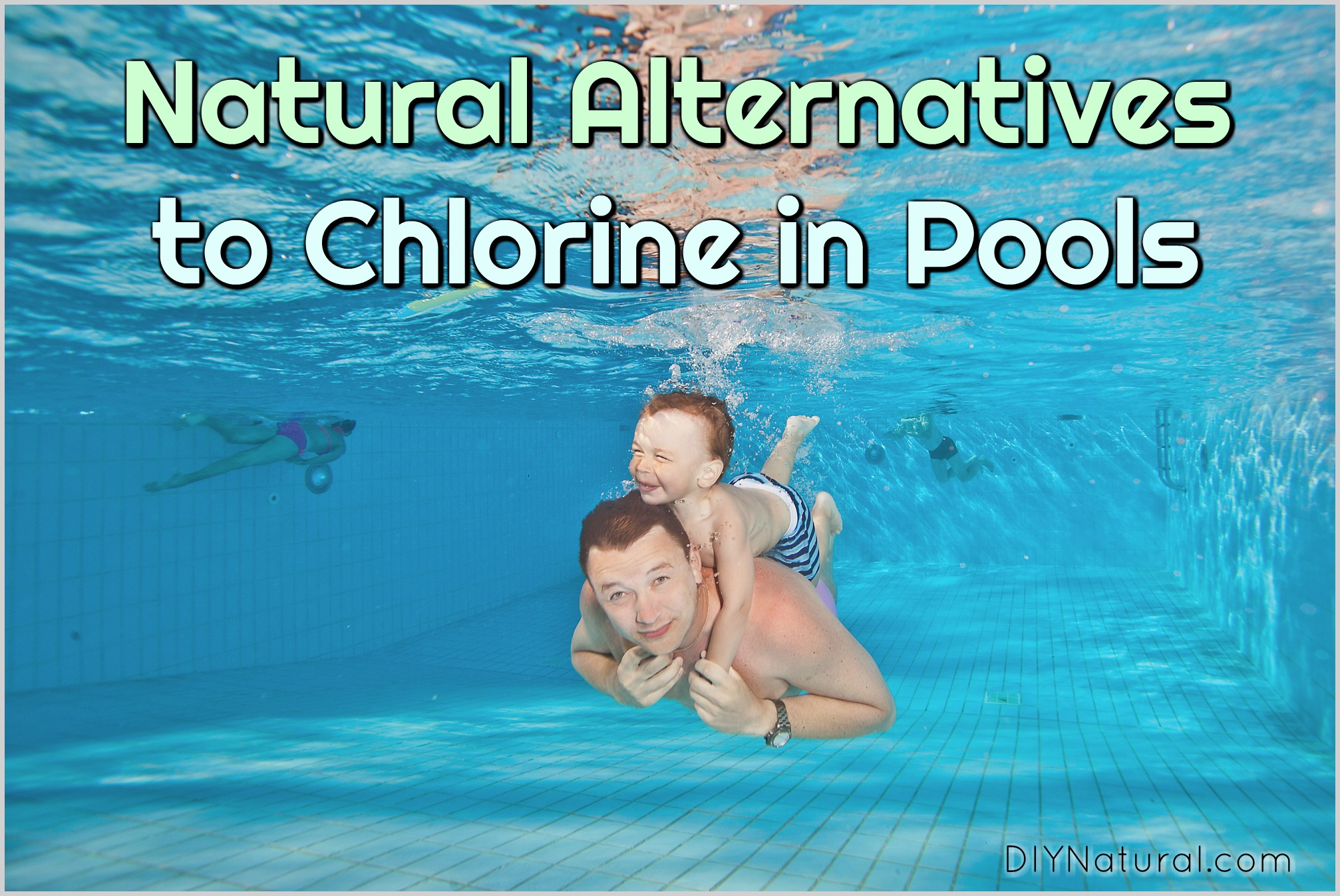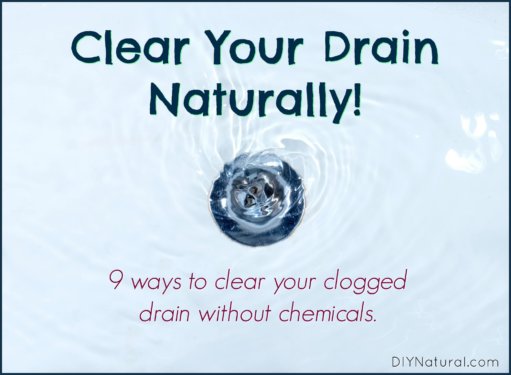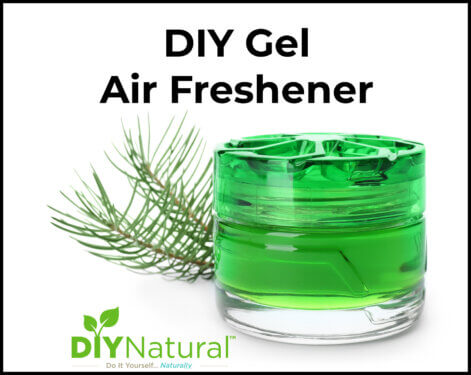
Chlorine is a popular pool sanitizer but also comes with health concerns. Fortunately, these natural pool chlorine alternatives work great!
During the months of hot summer days, many turn to swimming pools to escape the heat. People have been using chlorine to “sanitize” pool water for a long time. Chlorine helps to control microbes, germs, viruses, and many other things. But some people are opposed to chlorine for various reasons. Fortunately, there are natural alternatives that will help keep your pool clean.
Pool Chlorine Alternatives that are Natural
All pool cleaners do the same thing, destroy microbes that may make you sick. Here are some proven, and natural, pool chlorine alternatives you can use:
UV Light
Water passes through a tube with a UV light inside. The light then kills pathogens, trapping them in the filtering mechanism. A good UV filter can cost around $500 but will last a long time. (Find them here.) You may still need to use chlorine with some UV filters.
Diatomaceous Earth (DE)
DE is a pool chlorine alternative that you can put in the filter to help fill tiny holes, making the filter work better on smaller debris. Normally pool filters capture larger particles, but DE helps with tiny pieces. (Find DE here.)
Note: you can also use DE to get rid of ants naturally.
PHMB
Polyhexamethylene biguanide is better known as SoftSwim™ or Baquacil™. It uses safe bacteria that kill pathogens in the water. It will invade cell walls causing them to burst. Then it wraps them in a gel, making them heavy, so they sink and get filtered out. This is one of the more expensive pool chlorine alternatives at around $800 for a 10,000-gallon pool for the summer. (Find it here.)
Plants
The proper balance of plants in a pool will help to keep algae out of a pool. This may also help to keep pathogens in balance.
Hydrogen Peroxide
As little as a cup of peroxide to a hundred gallons of water can help keep germs at bay. You’ll need 35% peroxide, which you can get online. (This hydrogen peroxide has been diluted for safer storage and longer shelf life, so you simply use 3x the amount to get the same results as 35% peroxide.)
Showering Before Swimming
To help keep bacteria out of your pool in the first place, take a shower before you jump in. This will help get rid of oils on the skin, dead skin cells, and bacteria present on your skin. Although it’s not a pool chlorine alternatives, it will help keep pools clean.
Salt Water
Saltwater pools use salt, much like the ocean, to keep bacteria out of the water. While salt may not keep your pool totally germ-free, it will cut down on the bacteria quite a bit. Salt can also help with skin problems.
While these systems and others like them may help eliminate or reduce bacteria in a pool, they are not without additional costs. Weigh your options before making a decision. For some, the cost can outweigh the potential harm from chemicals like chlorine.
Have you tried natural pool chlorine alternatives in your pool? If so, let us know how it worked!
*******




Carol L is correct Linda. Adding other chemicals to chlorine can be toxic. These are meant to be used in place of chlorine.
Thank you! That is what I thought!
I also tried the hydrogen peroxide link that did not work. I found some by searching for 35% hydrogen peroxide. I am just wondering if it is safe to add if there is also chlorine in your pool. Thank you for all of the wonderful natural ideas!!!! I LOVE THEM!!!
Since these post are rarely monitored, I will try. You should NEVER mix chlorine with any other chemicals as toxic gasses could result. PLEASE! DO NOT ATTEMPT TO ADD OTHER INGREDIENTS TO CHLORINE.
Look it up.
The hydrogen peroxide link does not work.